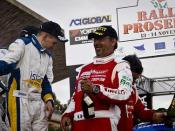Running head: EDUC 4091 - BUSINESS EDUCATION
To examine the teaching of concepts in business subjects in secondary schools
The key concepts of a Business Studies Curriculum are best explored by examining two areas. The first area is the examination of the business curriculum concepts as a framework for organising facts within the middle school curriculum. The second area is the identification of three existing business concepts. The first concept is production and markets within the area of Business and Economic systems. The second concept is sources and forms of information from the learning area of Information systems. The third concept of the Nature of Enterprising Activity from the broad area objective of Enterprise and Ventures is more specifically assessed by examining types of Enterprise Skills and types of Business Ownership. All three investigations are assessed by applying the theoretical bases of Tyler's (1949) curriculum development approach from Marsh (1997), and De Cecco's (1968) model of concept development from Martorella (1972), and the practical concept facilitation methods of Eggen and Kauchak (1999).
What are Concepts and how do they influence Curriculum Development?
Marsh (1997) describes concepts as mechanisms which provide efficient hierarchal approaches to defining and assessing subject areas. Martorella (1972), cites George's (1962) description of concepts as common elements shared by an array of objects or the relationship between parts of a process. More specifically, Martorella describes concepts in operational terms where specific components of the concepts allow the individual to make inferences into the objects perceptions and to make inferences from these perceptions. This is illustrated by the Queensland Middle School Business Pre-publication Syllabus (2003) concept of Business and Economic systems working model. For example, it describes types of business ownership. An individual reads in a text that Henry Sue works on his own, whereas Henry's brother Jack...


